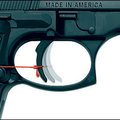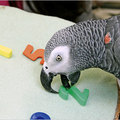Boris Yeltsin has died. A hero or not?
| |
 | |
BORIS NIKOLAYEVICH YELTSIN helped to destroy the Soviet Union and did much to bring Russia’s democracy into existence. The former construction engineer was not a great builder of institutions; the democracy was flawed. But he had the right instincts. For liberating Russians from the yoke of the one-party state and the planned economy, he deserves immense gratitude. Yet his nepotistic and capricious rule spawned colossal lawlessness and corruption, paving the way for his authoritarian successor, Vladimir Putin.
Born in 1931, Mr Yeltsin was a loyal provincial Communist, bulldozing the Ipatiev house in Sverdlovsk (now, again, Yekaterinburg) where the last tsar’s family was murdered. Promoted to Moscow party chief under Mikhail Gorbachev, he showed a revolutionary popular touch. Communist chieftains shunned the people. Mr Yeltsin mixed with them, sharing their fury about the shortages and indignities of daily life.
In 1987 Mr Gorbachev fired him, after an outburst that included direct criticism of the Soviet leader’s wife, Raisa: even in the burgeoning atmosphere of glasnost [openness], that was still taboo. Mr Yeltsin retreated to the shadows, only to return in 1990 as president of the Russian Federation. Russia’s statehood had been as nominal as those of other Soviet Socialist Republics such as Ukraine or Kazakhstan. But as the Baltic republics started galloping towards freedom, with Mr Yeltsin’s enthusiastic support, that changed. Could the Russian Federation too one day become a proper country?
It soon did. When bumbling Communist party hardliners mounted a coup against the Soviet leadership in 1991, it was Mr Yeltsin, denouncing the putschists while perched on a tank, who symbolised the successful democratic resistance. When Mr Gorbachev returned to Moscow from his seaside captivity, he found Mr Yeltsin in charge. The Russian leader humiliatingly gave his former boss a decree to read out acknowledging the new order.
As the other 14 Soviet republics digested their independence, Mr Yeltsin appointed a short-lived government of young reformers, led by Yegor Gaidar, who unleashed breakneck economic reform on the ruined country. It was deeply unpopular: price liberalisation made evident the destruction of savings under Soviet inflation. Privatisation meant a field day for robber barons. The institutions needed for a properly functioning market economy were pitifully lacking. It was in the Yeltsin era that the world learnt the term “oligarch”, to describe the overmighty tycoons who fused political and economic power.
Yet those reforms worked. Russia has a booming consumer-goods market. The robber barons were a lot better than the “red directors” they replaced, whose thinking and loyalties were still rooted in the Communist-run planned economy.
If the economic reforms now look better than they seemed at the time, his political failures look worse. Shelling Russia’s parliament in 1993, supposedly to dislodge Communist and other hardline deputies who had seized control there, reintroduced the virus of violence into Russian political life. So did the shameful Chechen war of 1994-96, which unleashed the might of the Russian war machine on the small breakaway republic. His rigged victory over the Communist Gennady Zyuganov in the 1996 presidential election spawned a habit of official vote-rigging that has largely destroyed the credibility of Russian elections.
His mistakes were greatest when prompted by his family and their cronies. While keeping the old man topped up with vodka, they hijacked Russia’s political and economic destiny, enriching themselves and discrediting both democracy and capitalism in the eyes of millions of outraged and contemptuous citizens.
All the same, Mr Yeltsin stood for three fundamental principles. He believed in freedom of speech, including freedom of the press, no matter what. He wanted Russia to be friends with the west. And he despised the Communist party and everything it stood for—particularly the KGB. It was a tragedy that he did not dissolve it fully in 1991, when he had the chance. It was an irony that the candidate his family chose as a safe successor, the cautious, little-known ex-KGB man, Mr Putin, should have done so much to reverse his legacy, blaming so many of Russia’s ills on what he calls the “chaos” of the 1990s.




